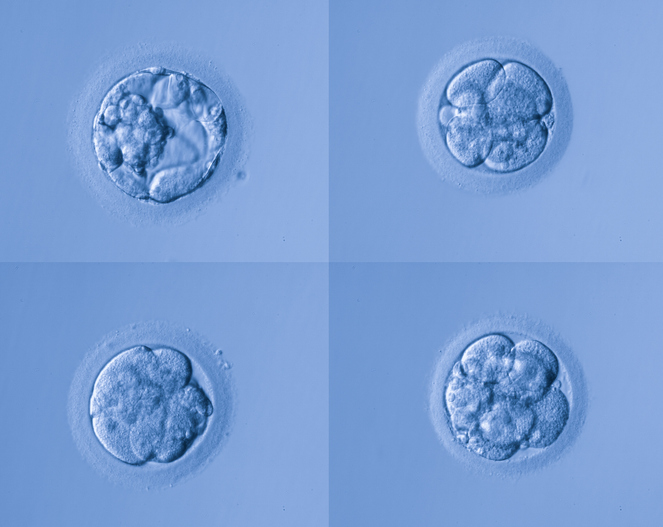

The idea of donating your eggs is on your radar. You may have heard women talking about donating, or maybe a family member or friend confided in you about needing donor eggs to conceive and inspired you to consider donating. Now, the idea of how to become an egg donor is on the brain.
Now, if you’re thinking about it but not sure where to start, we got you - let’s dive in.
Donor benefits
First of all, let’s discuss why you might even choose to donate your eggs. Donating your eggs is a chance to change a family’s life. It’s an opportunity to help an intended parent have the children they always wanted but may not be able to have because of reasons beyond their control. So there’s the feel-good, altruistic aspect of assisting another family.
With Cofertility, if you qualify for our Split program, you’re able to keep half of the eggs retrieved from each donation cycle - half will go to an intended parent and the other half will be frozen for you at no cost. So you’ll get the benefits of freezing your own eggs for free while also helping families in need.
The screening process
Okay, so we’ve reviewed the “why”; let’s dig into the “how.”
If you’ve decided to pursue egg donation, you might be wondering things like: what do you need to do on your end to qualify? What do you have to disclose about your background and your family?
Here’s what the egg donor screening process generally involves:
- Providing a detailed medical history about yourself and your immediate family.
- Sharing more about your personality and motivations for donating
- Undergoing a physical exam
- Testing for hereditary and genetic conditions as well as sexually transmitted diseases
- Checking your fertility to ensure your ovaries are healthy and are likely to respond well to a stimulation cycle
- Meeting with a counselor to discuss why you want to be an egg donor, talk about your psychological background, and ensure you’re clear on what the whole process will entail from a psychological perspective
Talking about yourself
Be willing to give lots of information.
Based on guidelines put forward by the According to the American Society for Reproductive Medicine (ASRM), you’ll need to talk about any diseases your parents, grandparents, or siblings have that may involve genetics. You will also need to describe your physical characteristics.
The Intended Parents will also want to know about you as a person - do you have any interests or personality traits that may be similar to theirs? Be prepared to share your accomplishments, talents, and inspirations. All of the facets that make you you are what may lead to a perfect match.
Psychological evaluation
Once you complete your self-reported questionnaires, you will also need to meet with a mental health counselor specializing in third-party reproduction. His or her goal is to ensure that you don’t have any misconceptions about the process and feel well educated about it all. Egg donation is a big deal and even if you are keeping some of the eggs for yourself, we want every one of our Split program members to feel good about the process.
The counselor will want to get to know you and may ask questions like:
- Why do you want to donate your eggs?
- How is your career going? What’s your financial status?
- Are you in a relationship? If so, how stable is this?
- Do you have any legal issues, such as custody battles or entanglement with restraining orders?
- How well do you get along with your parents and any siblings?
- Does your family have any history of psychiatric or substance disorders that might be genetic?
- How would you feel about meeting intended parents and potentially having some contact with a child conceived from one of your cycles?
- How would you feel if you chose to be anonymous and a child conceived from one of your donated eggs located you at some point? How would your family react?
The idea is not to be intrusive. It’s purely to find out about you and make sure you’re comfortable with the process here.
Testing and exams
If you continue past this stage, you will have to undergo some testing. While this can start to sound overwhelming, the process is not so different from visiting your doctor each year.
You’ll have to get some bloodwork done. Doctors will also want to check on your overall health and screen for any diseases such as hepatitis, HIV, or chlamydia that could spread during the fertility process.
Fertility levels
As part of the bloodwork, doctors will also measure your fertility hormone levels. The results here may offer information about your ability to produce eggs during a cycle successfully.
Here’s how it works. Doctors will test what’s known as your anti-Mullerian hormone (AMH) levels. Each month, when you produce an egg, this grows in a follicle that also produces AMH. Like your egg count, your amount of AMH decreases with time. If women develop diminished ovarian reserve (DOR), their AMH levels are usually quite low. So, while it’s not a foolproof metric, AMH levels can help doctors understand what your response to fertility stimulating medications might be. It will also help give you a better picture about your own fertility, regardless of whether you go forward with the donation process.
Genetic testing
Depending on your background and family history, you may need to undergo some genetic testing. Even if you don’t have a genetic condition yourself, you may be a carrier of a disease. So, if there’s a reasonable chance you have one copy of a gene, testing can identify this.
Having just one copy of a gene means you don’t have a particular condition in some cases, but can potentially pass the gene along. If the intended father or sperm donor has the same gene, the child may be born with this condition. The fact is, any one of us can be carriers for many different things - this is one of the reasons why testing is important.
Physical exam
Lastly, you will also need to undergo a physical exam, including a vaginal ultrasound. The ultrasound enables doctors to examine your ovaries and estimate how successful a cycle is likely to be. While this may be slightly uncomfortable, it is not a painful process.
On the ultrasound, the doctor can see how many follicles are developing in addition to what are known as antral follicles.These are much smaller follicles that are just starting to reach a stage large enough to be seen.
Early in life, women tend to have a lot of these small follicles; as women age, the number tends to decrease. If the doctor sees many antral follicles, this bodes well for the cycle and your fertility in general.
The physical exam will also help to ensure that you’re healthy and don’t have any unexplained rashes, lesions, recent tattoos or piercings, or other unusual marks on your body.
Getting started
At the end of the day, if you’re going through the donation process, it’s crucial that you feel comfortable. You do not need to commit until you are ready. There should be zero pressure if you decide it’s not the right path for you. The screening process is thorough, but it’s in the best interest of the both parties to ensure transparency and thoughtfulness.
We’re here to answer any questions along the way, and provide as much guidance as possible.










